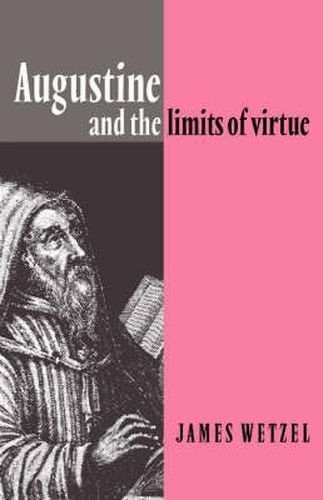Readings Newsletter
Become a Readings Member to make your shopping experience even easier.
Sign in or sign up for free!
You’re not far away from qualifying for FREE standard shipping within Australia
You’ve qualified for FREE standard shipping within Australia
The cart is loading…






Augustine’s moral psychology was one of the richest in late antiquity, and in this book James Wetzel evaluates its development, indicating that the insights offered by Augustine on free-will have been prevented from receiving full appreciation as the result of an anachronistic distinction between theology and philosophy. He shows that it has been commonplace to divide Augustine’s thought into earlier and later phases, the former being more philosophically informed than the latter. Wetzel’s contention is that this division is less pronounced than it has been made out to be. The author shows that, while Augustine clearly acknowledges his differences with philosophy, he never loses his fascination with the Stoic concepts of happiness and virtue, and of the possibility of their attainment by human beings. This fascination is seen by Wetzel to extend to Augustine’s writings on grace, where freedom and happiness are viewed as a recovery of virtue. The notorious dismissal of pagan virtue in ‘The City of God’ is part of Augustine’s family quarrel with philosophers, not a rejection of philosophy per se. Augustine the theologian is thus seen to be a Platonist philosopher with a keen sense of the psychology of moral struggle.
$9.00 standard shipping within Australia
FREE standard shipping within Australia for orders over $100.00
Express & International shipping calculated at checkout
Stock availability can be subject to change without notice. We recommend calling the shop or contacting our online team to check availability of low stock items. Please see our Shopping Online page for more details.
Augustine’s moral psychology was one of the richest in late antiquity, and in this book James Wetzel evaluates its development, indicating that the insights offered by Augustine on free-will have been prevented from receiving full appreciation as the result of an anachronistic distinction between theology and philosophy. He shows that it has been commonplace to divide Augustine’s thought into earlier and later phases, the former being more philosophically informed than the latter. Wetzel’s contention is that this division is less pronounced than it has been made out to be. The author shows that, while Augustine clearly acknowledges his differences with philosophy, he never loses his fascination with the Stoic concepts of happiness and virtue, and of the possibility of their attainment by human beings. This fascination is seen by Wetzel to extend to Augustine’s writings on grace, where freedom and happiness are viewed as a recovery of virtue. The notorious dismissal of pagan virtue in ‘The City of God’ is part of Augustine’s family quarrel with philosophers, not a rejection of philosophy per se. Augustine the theologian is thus seen to be a Platonist philosopher with a keen sense of the psychology of moral struggle.